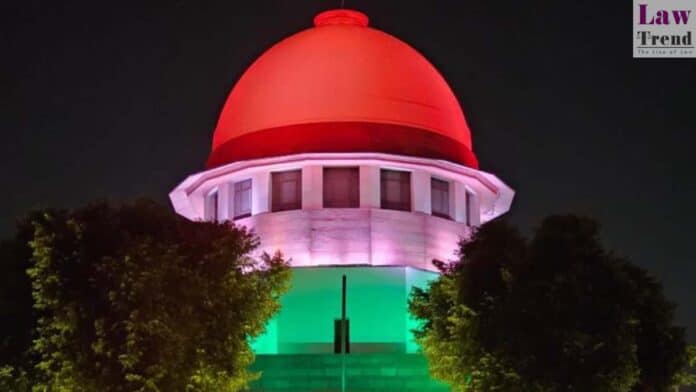The Supreme Court of India has agreed to evaluate the possibility of hearing a new petition that challenges certain provisions of the Waqf (Amendment) Act, 2025. The plea, highlighted by advocate Vishnu Shankar Jain, contends that these provisions infringe upon several constitutional rights and promote societal disharmony.
Chief Justice Sanjiv Khanna, alongside Justice Sanjay Kumar, acknowledged the petition’s submission on Tuesday, stating that cases with mentioning slips typically receive a hearing date within a week. This petition joins a series of ten others, spearheaded by AIMIM leader Asaduddin Owaisi, scheduled for April 16 under a three-judge panel including Justices Sanjay Kumar and K V Viswanathan.
Filed by Hari Shankar Jain and Mani Munjal against the Union of India, the Ministry of Minority Affairs, and the Central Waqf Council, the petition argues that the amended provisions of the original 1995 Waqf Act violate Articles 14, 15, 21, 25, 26, 27, and 300A of the Indian Constitution. The petitioners claim that these laws provide undue advantages to the Muslim community and grant Waqf Boards extensive control, leading to widespread unauthorized occupation of both governmental and private lands.
The plea cites over 120 petitions currently pending in various high courts, which reflect public grievances against alleged illicit land acquisitions by Waqf Boards. It also refers to a 2025 statement from the Union home minister noting a significant increase in Waqf-registered land—from 18 lakh acres in 2013 to 39 lakh acres in 2025. Concerns about inconsistencies in the Waqf land records, including the mysterious vanishing of leased property data, were also highlighted.
Furthermore, the petition seeks judicial declarations to exempt non-Muslims from the Waqf Act’s provisions and urges the government to reclaim public lands recorded under Waqf. It demands that non-Muslims be allowed to contest Waqf decisions in civil courts and calls for the repeal of several “unconstitutional” amendments.
The historical context of the partition in 1947 is invoked to argue against the classification of evacuee properties as religious sites. These properties, left behind by Muslims who migrated to Pakistan, should not be managed by Waqf Boards, according to the petition.
The legal challenges extend to specific sections of the Act, including those that lack sufficient safeguards for public participation or the protection of non-Muslim interests, misuse public funds for Waqf land surveys, and grant the Waqf Board authority to issue directives to district magistrates.




